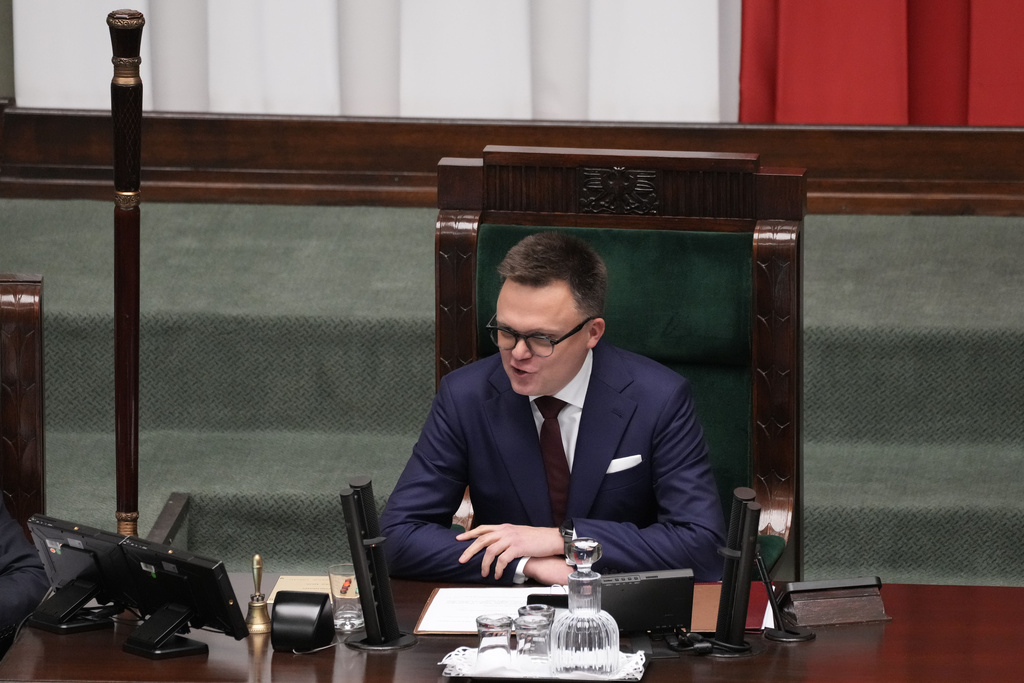The new speaker of the Polish parliament is Szymon Hołownia, the leader of the centrist Poland 2050 party, which comprised one-half of the Third Way electoral alliance.
He was elected with the votes of all the parties who had signed a coalition agreement and also received the backing of the right-wing Confederation party. Hołownia won the support of 265 deputies, beating the PiS candidate, Elżbieta Witek, who amassed 193 votes in the 460-member parliament.
According to the coalition agreement signed by Donald Tusk’s Civic Coalition (KO), Third Way, and the Left party, Hołownia will serve as speaker for two years and will be succeeded by the leader of the Left party, Włodzimierz Czarzasty.
In his first address as speaker, Hołownia said that the high turnout in the election had given the new parliament a strong mandate and said that it was now up to MPs to show the voters that their faith in democracy was justified.
Hołownia called for parliament to not be a place for fighting but a chamber for debate and discussion. He promised that all legislative drafts with sufficient support from MPs would be considered and that the “ugly” crowd control barriers outside of parliament would be removed to bring parliament close to the people.
Earlier on Monday, parliament heard an address from President Andrzej Duda in which he warned that he was prepared to use his power of veto, if he felt, Polish interests or the constitution were being violated.
Duda did not hide the fact that he would defend the “gains of the last eight years“ of conservative Law and Justice (PiS) rule, which he deemed to have been good for Poland.
He also encouraged the parliamentary majority to deliver on the promises they had made during the election and signaled he would not stand in the way of the spending pledges they had made during the campaign.
In the Senate, the weaker upper house of parliament, a speaker was also chosen: Małgorzata Kidawa-Błońska of the Civic Coalition (KO), the largest opposition group. The former opposition has held the Senate since 2019 but increased the size of its majority in last month’s elections.






